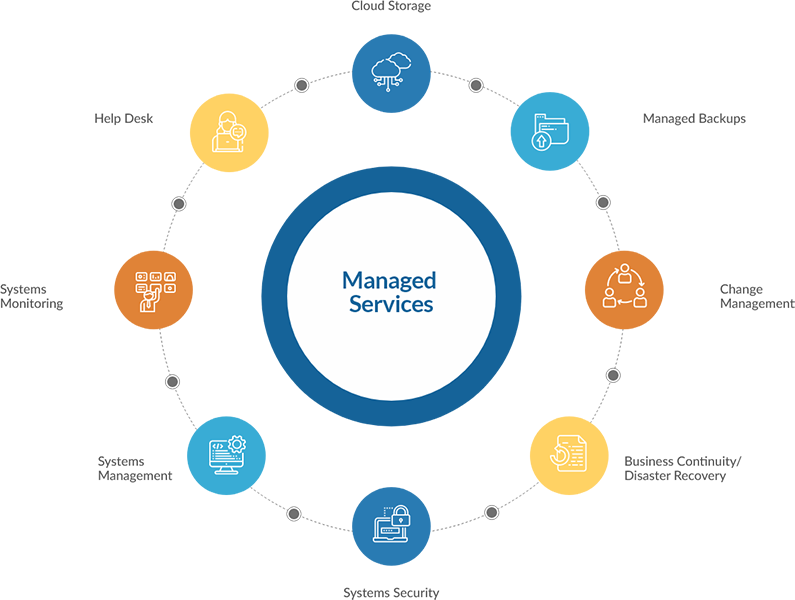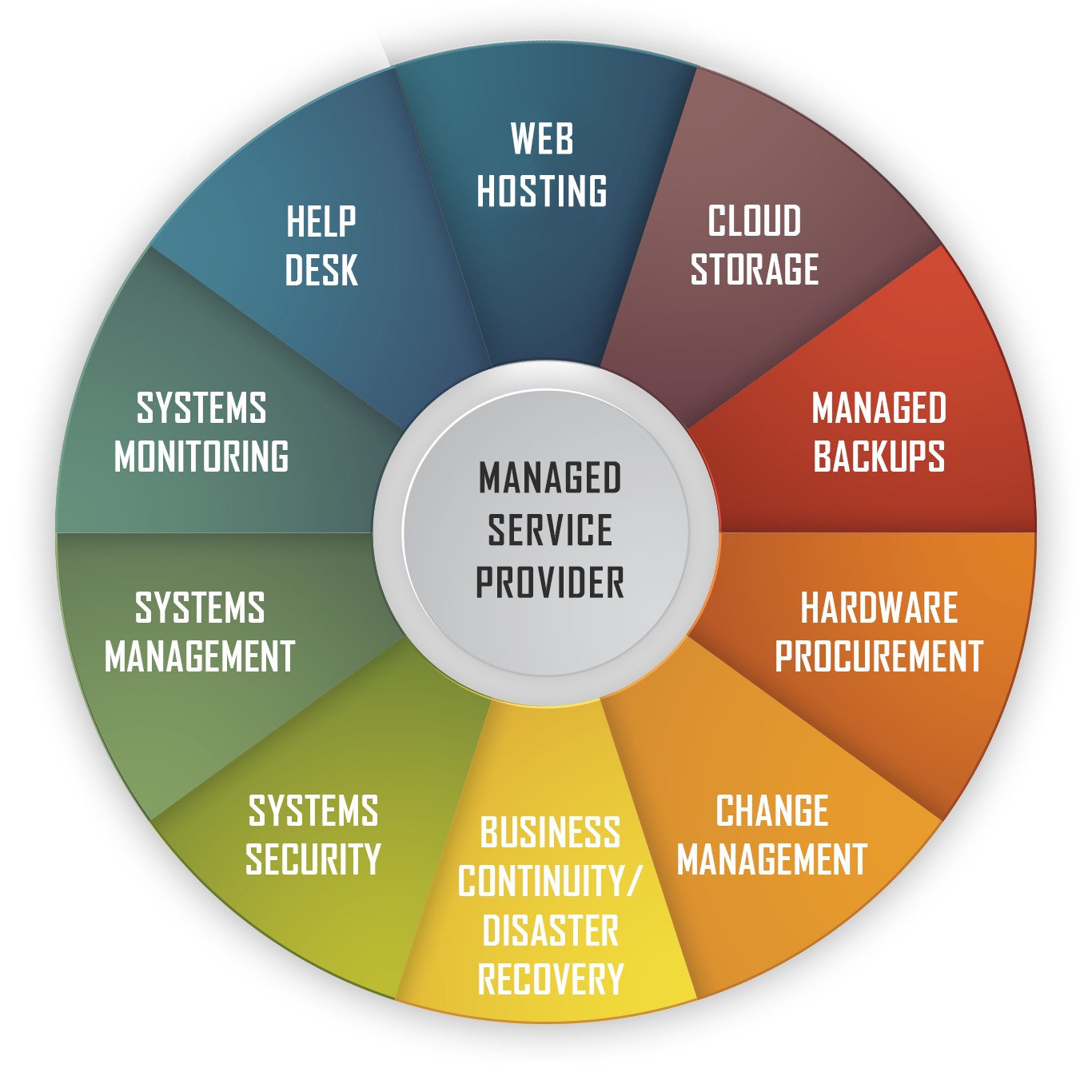The Benefits of Cloud Infrastructure for Businesses in the UK

Skyrocket Your Business Efficiency: The Untapped Benefits of Cloud Infrastructure in the UK
Introduction to Cloud Infrastructure
In today's fast-paced and technology-driven business landscape, staying ahead of the competition requires constantly embracing new approaches and tools. Managed IT Solutions that has revolutionized the way businesses operate is cloud infrastructure. Cloud infrastructure, in simple terms, refers to the storage, computing power, and networking capabilities offered by cloud service providers. In this article, we will delve into the untapped benefits of cloud infrastructure for businesses in the UK and why it is crucial for enhancing business efficiency.
The Benefits of Cloud Infrastructure for Businesses
The adoption of cloud infrastructure brings numerous benefits to businesses across various industries. One of the key advantages is cost savings. By leveraging cloud infrastructure services, businesses can eliminate the need for physical servers and costly on-premises infrastructure. This shift to cloud-based infrastructure allows companies to pay only for the resources they use, resulting in significant cost reductions.
Another benefit is scalability. Traditional infrastructure often struggles to cope with sudden spikes in demand, leading to performance issues. However, cloud infrastructure provides the flexibility to scale resources up or down based on business needs. This scalability ensures seamless operations even during peak times, resulting in improved customer satisfaction and increased revenue.
Cloud Infrastructure Services and Solutions
Cloud infrastructure services encompass a wide range of offerings tailored to meet the specific needs of businesses. Infrastructure as a Service (IaaS) is one such service that provides virtualized computing resources over the internet. With IaaS, businesses can access virtual machines, storage, and networks on-demand, without the need for physical hardware.
Additionally, cloud infrastructure solutions include platforms like Platform as a Service (PaaS) and Software as a Service (SaaS). PaaS offers a complete development and deployment environment, enabling businesses to build and launch applications quickly. SaaS, on the other hand, provides ready-to-use software applications hosted on the cloud, eliminating the need for local installations.
Exploring Different Types of Cloud Infrastructure
Cloud infrastructure can be categorized into three main types: public, private, and hybrid. Public cloud infrastructure refers to services provided by third-party vendors to multiple businesses. to find our more offers cost efficiency and flexibility, making it a popular choice for startups and small businesses.
Private cloud infrastructure, on the other hand, is dedicated to a single organization. It provides enhanced security and control over data, making it suitable for businesses with strict compliance requirements. Hybrid cloud infrastructure combines elements of both public and private clouds, allowing businesses to leverage the benefits of both environments.
Cloud Infrastructure Security and Best Practices
While cloud infrastructure offers numerous benefits, security is a crucial aspect that needs careful consideration. Cloud infrastructure providers employ advanced security measures to protect data and ensure compliance with industry regulations. However, businesses should also implement best practices to enhance security further.
Encrypting sensitive data, implementing multi-factor authentication, and regularly monitoring access logs are some of the recommended practices. Additionally, Telecoms services in London should educate employees on security protocols and conduct regular security audits to identify and address any vulnerabilities proactively.
Cloud Connectivity and the Importance of a Reliable Network
To fully leverage the benefits of cloud infrastructure, businesses need a reliable network and seamless connectivity. Cloud connectivity refers to the link between businesses and their chosen cloud service provider. It ensures uninterrupted access to cloud resources and enables efficient data transfer.
A reliable network infrastructure, such as dedicated connections or cloud connect services, ensures low latency, high bandwidth, and improved data security. With a robust network in place, businesses can optimize their operations, enhance collaboration, and provide a seamless experience for customers and employees.
Cloud Infrastructure as a Service (IaaS) and Its Advantages
Infrastructure as a Service (IaaS) is a popular cloud computing model that offers numerous advantages for businesses. With IaaS, businesses can focus on their core competencies, while leaving the management and maintenance of infrastructure to the service provider.
IaaS provides the flexibility of scaling resources up or down based on demand, eliminating the need for upfront investments in hardware. Additionally, businesses can leverage the expertise and experience of cloud infrastructure providers, ensuring reliable and secure operations.
Choosing the Right Cloud Infrastructure Provider


Selecting the right cloud infrastructure provider is crucial for ensuring a seamless transition to the cloud. Businesses should consider factors such as reliability, scalability, security measures, and support when choosing a provider. Conducting https://www.portmantech.com/our-services/cyber-security/ , reading customer reviews, and evaluating the provider's track record can help in making an informed decision.
Case Studies: Successful Implementation of https://www.portmantech.com/our-services/cloud-connectivity/ ">Cloud Infrastructure in UK Businesses
Let's explore some case studies of UK businesses that have successfully implemented cloud infrastructure solutions to enhance their business efficiency.
Case Study 1: Estates and Agency Group - Optimizing Operations with Cloud Infrastructure
Estates and Agency Group, a mid-sized e-commerce company, experienced rapid growth in customer demand. To cater to this increasing demand, they migrated their infrastructure to the cloud. By leveraging the scalability of cloud infrastructure, they were able to handle peak loads efficiently, resulting in improved website performance and increased customer satisfaction. The shift to the cloud also allowed them to reduce infrastructure costs and focus on business expansion.
Case Study 2: MT Finance - Enhancing Collaboration with Hybrid Cloud Infrastructure
MT Finance, a multinational corporation with offices across the UK, faced challenges in connecting and collaborating effectively due to geographical dispersion. They adopted a hybrid cloud infrastructure model, which allowed them to centralize their data and applications while providing secure access to employees across different locations. This implementation resulted in streamlined communication, improved productivity, and seamless collaboration among teams.
Conclusion: The Future of Cloud Infrastructure and Its Impact on Business Efficiency
In conclusion, cloud infrastructure offers a multitude of benefits for businesses in the UK. From cost savings and scalability to enhanced security and improved collaboration, the advantages are undeniable. As technology advances and businesses continue to embrace digital transformation, cloud infrastructure will play a pivotal role in driving business efficiency and success. To harness the full potential of cloud infrastructure, businesses should carefully choose the right provider and implement best practices to ensure a seamless transition. So, why wait? Embrace the power of cloud infrastructure and skyrocket your business efficiency.

CTA: To learn more about how cloud infrastructure can benefit your business, contact Portman Tech Solutions Limited at www.portmantech.com.
